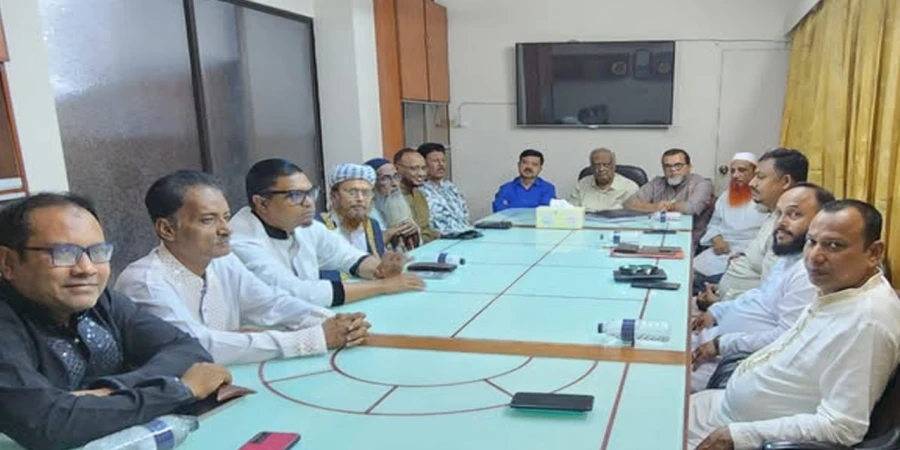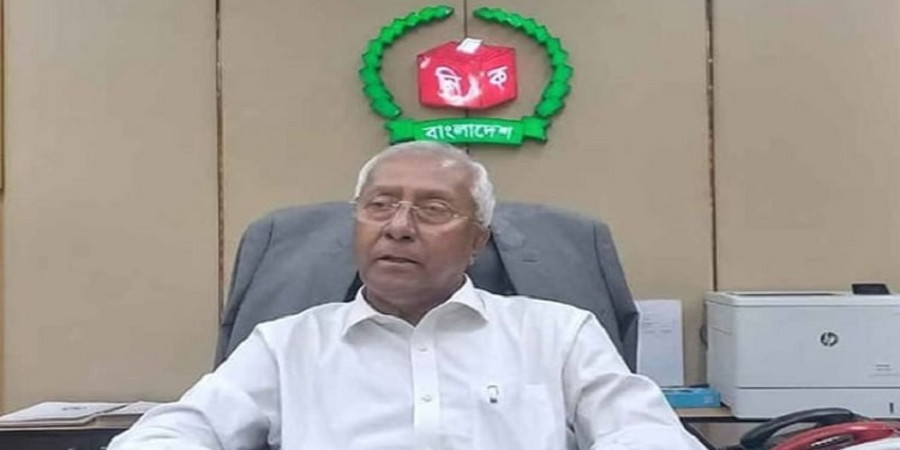
ছবি: Photo: Collected
The 12-Party Alliance has expressed strong reservations about the proposed humanitarian corridor through Bangladesh to Myanmar's Rakhine state, warning that such a move could pose significant threats to the country's sovereignty and long-term national security. In an emergency meeting held on Tuesday, April 29, alliance leaders called for an inclusive political dialogue before any policy decisions are finalized regarding the corridor.
During the meeting, held under the leadership of National Party Chairman Mustafa Jamal Haider, the alliance leaders voiced their concern over the government's unilateral approach in permitting humanitarian passage, reportedly to facilitate communication and aid access to the Arakan region. According to the discussion, the idea behind the corridor is to allow humanitarian agencies to operate through Bangladesh’s Chattogram region into Rakhine, given that direct access to the area from Myanmar is currently obstructed.
Alliance representatives argued that while they are not opposed to humanitarian efforts or United Nations initiatives aimed at assisting vulnerable populations, any such decision should be taken through a national consensus involving all political stakeholders. They insisted that bypassing broader political consultation for a matter of such magnitude risks undermining both public trust and national integrity.
The leaders drew a stark parallel to global conflict zones, warning that Bangladesh could risk becoming a “second Gaza” if strategic miscalculations are made. With the country already grappling with the burden of housing over a million Rohingya refugees, the alliance emphasized that any further involvement in regional conflicts could destabilize the nation further.
They also pointed out that, although the Arakan Army has taken control of nearly 90 percent of Rakhine territory from Myanmar’s ruling junta, persecution of Rohingyas has not ceased. Rohingya families continue to flee into Bangladesh, raising concerns that hostility toward this community exists not only within the junta but also among Arakan insurgents.
Beyond the humanitarian dimension, the alliance stated that the proposed corridor is entangled with complex regional geopolitics, national security, military strategy, and economic implications. It could lead to new regional power alignments and heightened tensions with neighboring countries. As such, the matter requires careful deliberation and the formation of a comprehensive strategic framework before any decision is made.
They further advised that the government's handling of the corridor initiative must also consider the perception and interests of neighboring nations, as it may affect regional diplomatic relations and Bangladesh’s position in broader international politics.
In addition to National Party Chairman Mustafa Jamal Haider, the meeting was attended by alliance spokesperson and Bangladesh LDP Chairman Shahadat Hossain Selim, alliance coordinator and Bangladesh National Party Chairman Syed Ehsanul Huda, National Party Secretary General Ahsan Habib Lincoln, Secretary General of Jamiat Ulema-e-Islam Bangladesh Mufti Golam Mohiuddin Ikram, JAGPA Vice President Rashed Pradhan, Bangladesh Labour Party Chairman Lion Farooq Rahman, Kalyan Party Chairman Shamsuddin Parvez, Islamic Oikya Jote Senior Vice President and freedom fighter Shawkat Amin, Progressive Nationalist Party (PNP) Chairman Firoz Mohammad Liton, Islamic Party Secretary General Abul Kashem, Naya Ganatantrik Party Chairman MA Mannan, Bangladesh LDP Secretary General Tamiz Uddin Titu, Kalyan Party Secretary General Abu Hanif, Labour Party Secretary General Aminul Islam, and Naya Ganatantrik Party Secretary General Imrul Kayes, among others.
The alliance concluded by reiterating the importance of national unity, strategic foresight, and multilateral coordination in any move that could affect the country's sovereignty, regional stability, or internal security.
repoter






